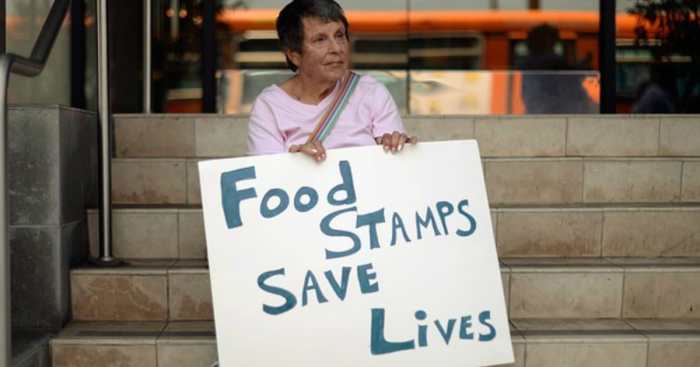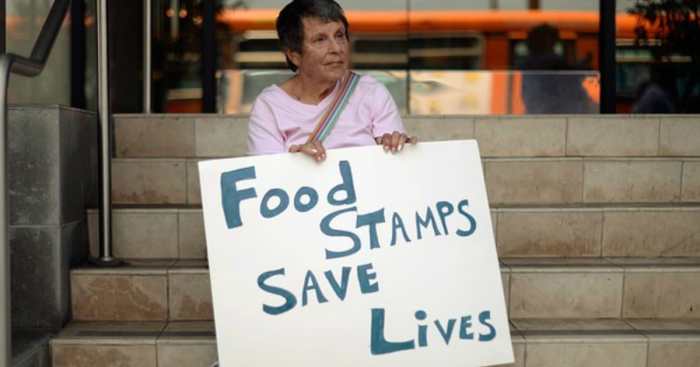Food stamp fraud is a serious issue that can have significant consequences. In this article, we will explore the different types of food stamp fraud, the penalties for committing fraud, and the steps you can take to prevent it.
Food stamp fraud occurs when someone intentionally misrepresents their income or household size to obtain food stamps. This can be done by failing to report all income, claiming dependents who do not live in the household, or using someone else’s food stamp card.
Overview of Food Stamp Fraud

Food stamp fraud is the intentional misuse of food stamps or other government assistance programs intended to provide food assistance to low-income individuals and families.
There are various types of food stamp fraud, including:
- Trafficking: Selling or exchanging food stamps for cash or other goods.
- Counterfeiting: Creating or using fake food stamps.
- Over-issuance: Receiving more food stamps than eligible.
- Misrepresentation: Providing false information to obtain food stamps.
- Theft: Stealing food stamps from authorized recipients.
The penalties for food stamp fraud can vary depending on the severity of the offense, but can include fines, imprisonment, and disqualification from future benefits.
Identifying Food Stamp Fraud
Recognizing food stamp fraud is crucial to maintain the integrity of the program and ensure its benefits reach those in need. Here are some key tips and red flags to watch out for:
Tips for Identifying Food Stamp Fraud
- Discrepancies in information: Inconsistent information provided on applications or between different sources can indicate fraud, such as different addresses or income levels.
- Unusual spending patterns: Large or frequent purchases of luxury items or non-food items can raise suspicions, as food stamps are intended for food purchases only.
- Evidence of ineligible individuals: Non-citizens or individuals who do not meet residency requirements may be ineligible for food stamps, so their presence in a household can be a red flag.
- False or altered documents: Forged or tampered documents, such as birth certificates or proof of income, can be used to deceive authorities.
- Collusion with retailers: Retailers who knowingly accept food stamps for non-eligible purchases or overcharge for items may be involved in fraud.
Role of Law Enforcement
Law enforcement agencies play a vital role in investigating food stamp fraud. They conduct investigations, gather evidence, and prosecute individuals or businesses involved in fraudulent activities. By working with social service agencies and the public, law enforcement helps protect the integrity of the food stamp program and ensures that benefits are used for their intended purpose.
Consequences of Food Stamp Fraud
Engaging in food stamp fraud can result in severe consequences that extend beyond legal and financial repercussions. The social implications of such actions can also be significant, affecting both individuals and the community as a whole.
Legal Consequences
Food stamp fraud is a serious offense that can carry substantial legal penalties. Individuals found guilty of committing fraud may face:
- Fines of up to $250,000
- Imprisonment for up to 20 years
- Disqualification from receiving food stamps for a period of time
- Restitution for the amount of benefits fraudulently obtained
Financial Consequences
In addition to the legal consequences, food stamp fraud can also have significant financial implications. Individuals who are caught committing fraud may be required to repay the benefits they received illegally, along with any associated fines and court costs. This can result in a substantial financial burden, potentially leading to debt and other financial difficulties.
Social Consequences
The social consequences of food stamp fraud can be just as damaging as the legal and financial repercussions. Individuals who engage in such actions may face:
- Damage to their reputation and credibility
- Loss of trust from family, friends, and the community
- Difficulty obtaining employment or housing
- Negative impact on their children and other family members
Preventing Food Stamp Fraud
Curbing food stamp fraud requires a multifaceted approach involving proactive measures, education, and effective enforcement. By implementing strategies that address both individual fraudsters and systemic vulnerabilities, communities can safeguard the integrity of the program and ensure that food assistance reaches those who truly need it.
Education
Educating both recipients and the general public about food stamp fraud is crucial for prevention. Outreach campaigns should clearly define fraud, explain its consequences, and provide reporting mechanisms. By raising awareness, individuals are more likely to recognize and report suspicious activities.
Program Integrity Measures
- Verification and screening: Implementing rigorous eligibility checks, income verification, and asset screening helps identify potential fraud cases.
- Data analytics: Using data analytics to detect patterns of abuse, such as multiple applications from the same address or unusually high benefit amounts, can help flag potential fraud.
- Quality control: Regular audits and reviews of case files ensure that eligibility is being determined accurately and that benefits are being distributed fairly.
Enforcement and Prosecution
Swift and decisive enforcement actions are essential to deter food stamp fraud. Collaborating with law enforcement agencies to investigate and prosecute cases sends a strong message that fraud will not be tolerated.
Final Summary
Food stamp fraud is a serious crime that can have significant consequences. If you are convicted of food stamp fraud, you could face jail time, fines, and a loss of benefits. It is important to be aware of the different types of food stamp fraud and the penalties for committing fraud.
You can help prevent food stamp fraud by reporting any suspected fraud to your local law enforcement agency.
FAQ Summary
What are the different types of food stamp fraud?
There are many different types of food stamp fraud, including:
- Failing to report all income
- Claiming dependents who do not live in the household
- Using someone else’s food stamp card
- Buying non-food items with food stamps
- Selling food stamps for cash
What are the penalties for food stamp fraud?
The penalties for food stamp fraud can vary depending on the severity of the offense. However, you could face jail time, fines, and a loss of benefits if you are convicted of food stamp fraud.
How can I prevent food stamp fraud?
You can help prevent food stamp fraud by reporting any suspected fraud to your local law enforcement agency. You can also help prevent food stamp fraud by educating yourself about the different types of fraud and by taking steps to protect your food stamp card.


